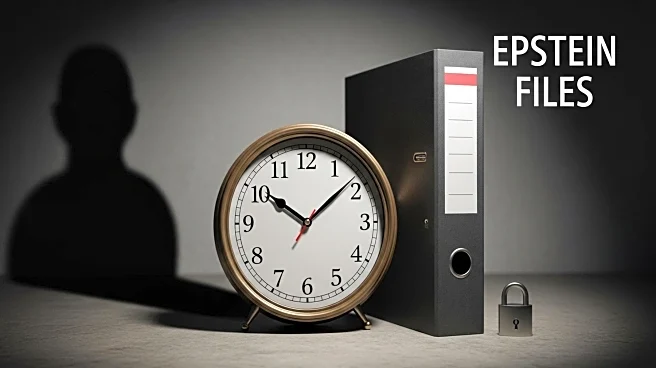What's Happening?
As Congress returns from a six-week recess, it faces a looming deadline to fund the government by October 1 to avoid a shutdown. Bipartisan cooperation is essential, with Democratic leaders seeking talks with President Trump and GOP leadership. Concurrently, the Epstein files are set to dominate discussions, with lawmakers planning a news conference with survivors of Epstein's abuse. The House Oversight Committee is actively pursuing subpoenas related to Epstein, including high-profile figures. The situation is complicated by ongoing debates over federalization of Washington, D.C., and other cities, as well as Trump's nominees and foreign policy issues.
Why It's Important?
The potential government shutdown poses significant risks to public services and economic stability, highlighting the need for bipartisan negotiation. The Epstein files controversy adds complexity, potentially affecting legislative priorities and public trust in government transparency. The federalization of D.C. and Trump's nominees further complicate the political landscape, impacting governance and policy implementation. These issues underscore the challenges Congress faces in balancing urgent legislative needs with ongoing controversies, affecting both domestic and international policy directions.
What's Next?
Congress must navigate these challenges to secure government funding, with potential stopgap measures likely. The Epstein files may lead to further investigations and legislative actions, influencing public discourse and policy. The federalization debate and nominee confirmations will require strategic negotiations, impacting future governance. The outcome of these discussions will shape the political and legislative landscape, affecting stakeholders across various sectors.









